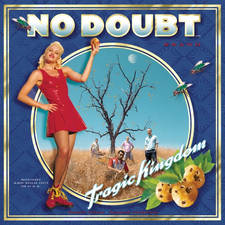Cambridge: Fine Dining 'Losing Its Snobbery'
10 April 2014, 06:15 | Updated: 11 April 2014, 15:44
A new class of restaurant clientele are increasingly splashing out on Michelin-starred dining while turning their noses up at fast-food chains, according to a new study by a Cambridge expert.
Stuffy fine-dining establishments largely populated by businessmen with expense accounts have gradually been transformed by a wave of middle-class diners, University of Cambridge academic Christel Lane has said.
Chefs including Tom Kerridge, Marcus Wareing and Ruth Rogers along with a sample of diners contributed to her new book, The Cultivation Of Taste, described as the first sociological study of Michelin-starred restaurants.
Ms Lane said: ``The snobbery of fine-dining is gradually being eroded.
``It hasn't completely disappeared - particularly in restaurants with three Michelin stars.
``But there is a new developing group of largely professional people who are interested in the origin of their food and, in the same way they might plan a mini-break, are willing to save up for the occasional treat in a one or two-star restaurant.
``Most people I spoke to would go two or three times a year and it's not just about eating but a total cultural experience, like going to a play.
``This isn't a complete democratisation, it is more of a new elite.
``You still wouldn't find many working-class people who regard fine dining as a good use of money.''
Such customers are as likely to dine in a local restaurant or curry house as a two-starred establishment but stop short at high street burgers, she said.
``They have diverse tastes and don't mind what a meal costs - people can't afford fine dining all the time and wouldn't want it if they could,'' she added.
``But most draw the line at McDonald's and other chains.''
The author said the turning point came in the 1990s with the emergence of chefs like Macro Pierre White and the growing popularity of television cooks.
This combined with travel broadening the public's culinary horizons continues to encourage diners to look beyond the traditional meat and two veg.
Ms Lane said: ``It would certainly be too soon to say that the British palate as a whole has become more sophisticated.
``But when compared for example with diners I spoke to in Germany, there are certain sections of society who are now more willing to engage with new ideas and the Brits are less puritan about their food.''
The change has led to restaurants becoming more informal but the quality of what is on the plate has remained unchanged.
``The chefs themselves are attuned to what the public wants and are keen to go with it - most of them are of a more modest origin than their diners and don't want a posh establishment,'' Ms Lane added.
``There are some for example who are conscious of not overwhelming customers with too much cutlery.
``There are always trends - such as molecular techniques - when it comes to the food itself.
``But by and large the food is still elaborate because chefs are driven by the competition to innovate.''
While price may not be a deterrent for the emerging class of diner, there are other obstacles.
Ms Lane said: ``There can be a perception that is often perpetuated by the media that these are intimidating places.
``Often the reality is very different and, once they get through the door, customers find them welcoming places.
``I'm a scruffy academic and have never felt the need to dress up.
``But some people may falsely believe they lack the education or social background needed to frequent such establishments.''

